With Hulu’s recent release of a cache of Korean dramas, I’ve been delightedly revisiting some old guilty pleasures that help me bond, on an existential level, with other Korean women across the world. The K-drama is an art form that may not take the first time due to culture shock, so I will guide you through Mordor this bewildering wonderland of curly hair, physical slapstick, and a lot of frustration that is both infuriating and titillating. I’ve put together a list of some tried and true tropes you will encounter along the way.
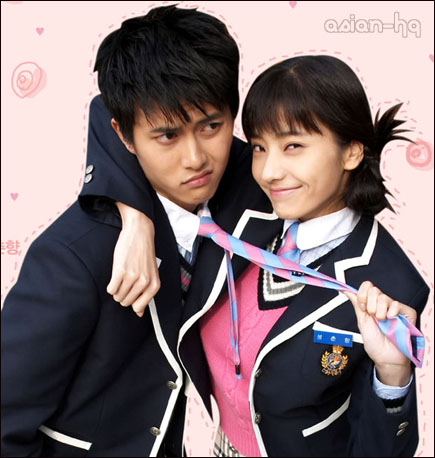
Sassy Girl Chun Hyang
THE MANIC PIXIE DREAM GIRL
So clueless, yet so appealing in her unaffected innocence and carefree ways, meet the K-drama Manic Pixie Dream Girl! She is a loudmouth who can eat twice her weight on a whim and she usually runs around dressed rather inappropriately for the weather. More importantly, she is completely oblivious to the power her actions and words have over men. The MPDG breezes into the hero’s life and forces some much needed emotion and sunshine into his dry and meaningless existence.
The MPDG never actually threatens to overturn the status quo, but she’s still endearing in her random and un-ladylike acts of charm, like headbutting the hero in the face or embarking on an impossible eating binge. While she is desired for her joy and innocence, she is actually quite flighty and unwilling to settle down just yet. Word of caution: don’t be completely fooled by her sunny, capricious way of life. Deep down the MPDG harbors a secret pain, which will be revealed in a rare heart-to-heart over some ice cream and strategic tears.
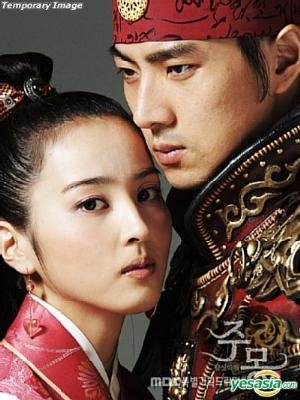
Ju-Mong
THE EMOTIONALLY CONSTIPATED MAN
The Korean man is a taciturn and conflicted creature, preferring to repress his emotions until it’s no longer possible. This causes him to explode at the most inopportune and inappropriate times, for which he’ll never offer an explanation or apology. Expect a lot of wrist grabbing and furrowed brows from this surly beast who just wants to be loved without having to admit his human frailty. He prides himself on knowing how to deal with things (by not dealing with them) and must be taught how to love and, consequently, be human.
The ECM comes to us in various forms, be it the languishing student, an heir to some sort of dynasty (political, economic, or otherwise), or an angry delivery boy trying to make ends meet with the few bootstraps he has left. Although he barks and growls at everyone, the ECM is baffled by the MPDG who seems immune to his mood swings. This leads to a lot of childish whining and petulant antics whenever the MPDG is within a five foot radius. Because he is supposed to embody the masculine ideal, he is possessively jealous, expressing his “feelings” withe either overprotective and aggressive gestures, or tender caresses when he thinks no one is paying attention, including the MPDG.
Check out this “meet-cute” from Full House (you can just skip to 3:25 for the best part):
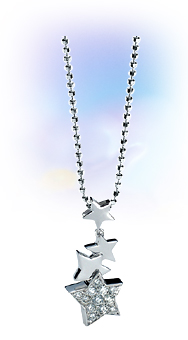 SYMBOLIC JEWELRY
SYMBOLIC JEWELRY
You’ll notice the piece early on, usually in the form of a necklace. This sentimental bauble might have once belonged to the ECM’s mother, or it might be custom ordered by the ECM to showcase just how much his ladylove means to him. You can expect a lot of stars, or an obviously symbolic charm, like a key. In the case of the popular drama Winter Sonata, the famous “Polaris” necklace spawned countless well made, high end knockoffs that are still popular and found a second wave as a cell phone charm. While the transfer of ownership of the jewelry might not be specifically shown, it will still be visually highlighted later on, somehow.
DEAD OR MISSING PARENTS
Parental relationships and upbringing explain a lot about a person and this is no exception for the K-drama. Often, at the root of the ECM’s cold and introverted exterior is the festering pain of having never known or forgiven a parent. If it’s his mother, she died at a painfully young age, beautiful but sad and mistreated by his womanizing father. If it’s the father, he either never knew him or was abandoned. The MPDG is doggedly cheerful because it’s a coping mechanism, helping her deal with the loss of a beloved dad who never came home because he was hit by a car on the way back from a night shift at the coal mine, where he was trying to make ends meet, and he died alone on the cold street (this actually happened in Glass Slippers).
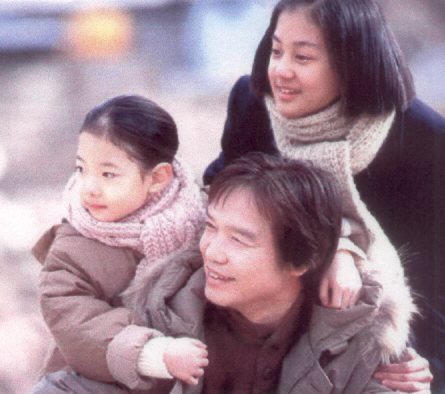
Glass Slippers
The significance of a dead or missing parent is twofold: in addition to being a motivator for a life outlook and vehicle for a grand revenge scheme, it sets up the murky “Am I in love with my sibling?” mystery subplot. It’s also very possible that this dirt poor, but kind and happy girl is the long lost heiress to an international economic juggernaut that was wrongfully usurped by the hero’s grandfather decades ago.
And of course, it’s meant to make you cry. This is where I admit I’ve cried shamelessly at some needlessly tragic and untimely onscreen deaths.
A ONE NIGHT STAND THAT DIDN’T HAPPEN
This is a common plot device that sets up hijinks and hilarious misunderstandings. One – or both – of the party will get drunk and fall asleep without partaking in any sexual activity. It is important that neither remember their night of passion and wake up in a compromising position. This leads to a lot of flustered yelling and determined avoidance that guarantees a lot of coincidental social meetings. The “one night stand” also plants the first inkling of a crush in the suddenly hormonal mind of the ECM, who up to that point didn’t realize that he could have feelings like that. Of course, although the two protagonists swear to never divulge or acknowledge their torrid sex fest, someone always finds out, which leads to my next point…
BLACKMAIL AND SECRETS
There are a lot of jealous haters out there in the K-drama world. A lot of ruthless, cutthroat schemers who’ll do whatever it takes to achieve whatever it is they’re after (money or marriage with one of the two protagonists). This is where it’s usually revealed that both the MPDG and ECM are completely naive and will go along with the blackmailer’s demands instead of seeking help. If only they would know to speak up and honesty would nip the drama in the bud! One can only dream.
LOVE TRIANGLES
They’re inevitable, so get used to them or ignore them.
ORPHANS AND POSSIBLE INCEST
As mentioned above, it’s crucial that familial origins be as murky and mysterious as possible in order to set the stage for one of the following scenarios: a tragic revenge enactment that may possibly end in a homicide-suicide, a grand pauper to prince ending, or, in this instance, a whole lot of panic over the possibility that you might have just fallen in love with your sibling.
HIGH SCHOOL or AUs
As indicated by the title of this post, you must suspend belief in reality when watching K-drama. A lot of the series are set in a high school, with an amazingly unrealistic lack of parental supervision, or are set in alternate universes where South Korea is a monarch, as seen in My Princess or The Princess Hours.
STILL KISSES, BUT NO SALIVA
South Korea is still pretty conservative when it comes to sex and physical interaction (slut shaming ahoy). Someone once noted that in Western media, the ultimate plot goal is sex. In South Korean media, the ultimate story ending is marriage. Kissing in the K-drama involves the pair literally just pressing their closed mouths against one another’s, with eyes closed. This looks especially weird when it’s supposed to be a kiss of passion (i.e the ECM just grabs the MPDG by the neck and pulls her in without her consent in a ferocious move of possessiveness). It’s crucial that the awkward kissing position is held for an exceedingly, uncomfortably long time as the episode cues out (with a freeze frame and dramatic music). It is also important that nobody moves, because doing so would constitute something really lewd and porn-y. If you still can’t visualize it, here’s a great montage set to some tender music:
DEATH, BLINDNESS, CANCER OR AMNESIA (BUT MOSTLY DEATH)
All things must pass, but in K-drama land, there is never an end to the tragedy and bodily harm. Death always lurks around the corner, a soft sigh and a scarf away.
Just when things seem to be turning for the better, tragedy will strike ruthlessly. The ECM will get hit by a car and suffer amnesia, leading him back into the claws of the villainess (that evil bitch) who, in a last ditch effort to steal his fortune, will shamelessly manipulate him into believing that she’s actually the MPDG. Or, perhaps, the MPDG’s secret pain is revealed as a lifelong battle with a super rare form of cancer that just took form now, giving the couple only a few months of tempered bliss. Even after the MPDG passes on, the ECM will routinely visit her grave to talk to her because her love is like the wind, unseen but felt all around (oops, wrong movie).
This shameless move on the part of the writers is to wring out few last agonized moments, inspiring viewer sob fests and panicked “What if I just wasted my time this doesn’t end happily?” reactions, before the series suddenly does end on a (relatively) happy note. For instance, the ECM will regain his memory back in the end, although no happiness is guarantteed since the MPDG is blind. The ECM will coordinate an epic car crash to commit suiced, covering his eyes on impact to ensure they get donated to MPDG. In turn, she won’t know for a few months that he has died because he’ll have set up a series of pre-written postcards that are sent from “Hawaii.” I really wish I could tell you I made this scenario up, but this actually happened in Stairway to Heaven.
You might say to yourself, “Hey, some of these plot devices sound really familiar!” and you’ll be correct. The language of hand wringing, improbable misunderstandings, and dramatic cliches is shared by many dramas across the globe in some ways. Feel free to use the above K-drama road map and see if it might work for your favorite series. And most importantly, my last piece of wisdom is this:
IT’S MELODRAMATIC. DEAL WITH IT.

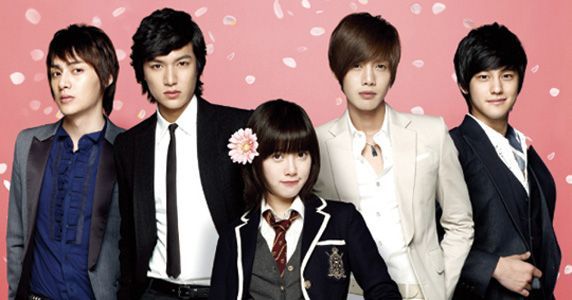
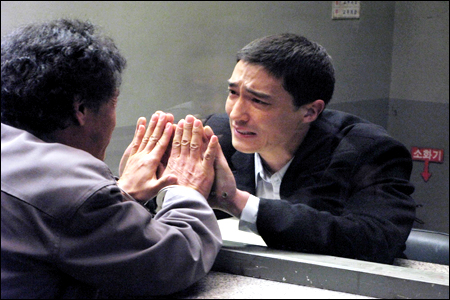
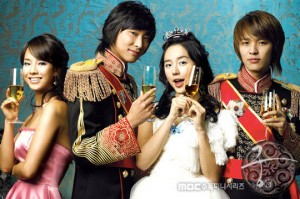
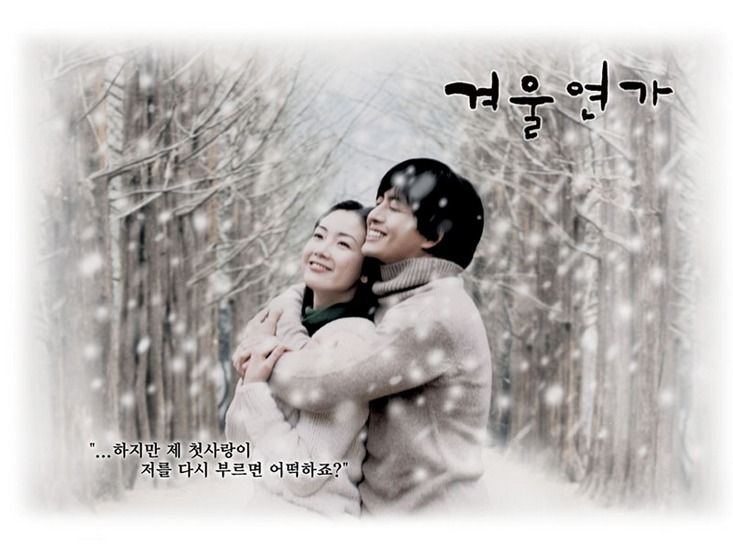

it took me a long time to get through this because I was laughing so hard.
write more articles like this, please!!
For Korean dramas, I really enjoyed Coffee Prince and Lie to Me on Hulu. Next up is Vampire Prosecutor which just looks to ridiculous to pass up!